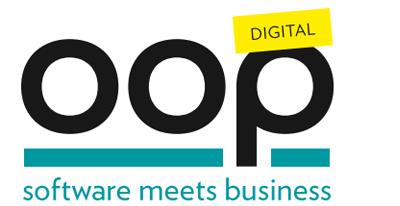SOFTWARE MEETS BUSINESS:
Die Konferenz für Software-Architektur
08. - 12. Februar 2021, Online-Konferenz

OOP Fachforen
OOP Fachforen
Track: Java
- Dienstag
09.02.
GraalVM ist eine polyglotte VM, die schnelle Startup-Zeiten bei gleichzeitig geringem Speicherverbrauch verspricht. Sie eignet sich somit perfekt für den Einsatz in Container- und Cloud-Umgebungen. Mit GraalVM Native Image lassen sich native Binaries erzeugen, Daraus kann ein signifikanter Performance-Vorteil entstehen. Dieser Talk zeigt die notwendigen Schritte, um ein Native Image aus einer Spring Anwendung zu erzeugen und erklärt die dazu notwendigen Konfigurationen anhand praktischer Beispiele.
Zielgruppe: Software-Architekten, Software-Entwickler, Web-Entwickler, IT-Consultants
Schwierigkeitsgrad: Fortgeschritten
Ops tooling has so far been the domain of shell scripts, interpreted languages like Python or statically compile languages like Go. But with the advent of GraalVM this situation has changed significantly. But behold: it is now possible to apply the power of the Java language and its ecosystem to your DevOps tooling problems and yet get optimal performance and efficiency by using GraalVM native images. In this session we will show that versatile 12-factor CLIs and powerful Kubernetes operators can be implemented in Java super easy in no time.
Target Audience:Software Architects, Software Developer
Level: Advanced
Mario-Leander Reimer ist passionierter Entwickler, stolzer Vater und #CloudNativeNerd. Er arbeitet als Principal Software Architect bei der QAware GmbH und beschäftigt sich intensiv mit den Innovationen und Technologien rund um den Cloud Native Stack und deren Einsatzmöglichkeiten im Unternehmensumfeld. Außerdem unterrichtet er Software-Qualitätssicherung an der TH Rosenheim.
Mehr Inhalte dieses Speakers? Schaut doch mal bei sigs.de vorbei: https://www.sigs.de/autor/Mario_Leander_Reimer
Microservices sind aus modernen Architekturen nicht mehr wegzudenken und werden oft als Wundermittel verkauft. Dabei wird meist außer Acht gelassen, dass Microservices die Komplexität von Systemen nicht verringern, sondern lediglich verschieben. Durch viele miteinander kommunizierende Microservices erkauft man sich höheren Aufwand bei der Nachverfolgung von Prozessketten und es kostet mehr Mühe Probleme, wie z.B. erhöhten Latenzen, Systemausfälle und Fehler zu lösen.
In diesem Vortrag erfahrt ihr, wie ihr Tracing (Opentracing – Jäger) in eure Anwendung bekommt (SpringBoot, MicroProfile, Node.js) und wie es euch Hilft bei diesen verteilen Systemen den Überblick zu behalten.
Not too long ago, a reactive variant of the JDBC API was released, known as Reactive Relational Database Connectivity (R2DBC). While R2DBC started as an experiment to enable integration of SQL databases into systems that use reactive programming models, it now specifies a robust specification that can be implemented to manage data in a fully reactive and completely non-blocking fashion. In this session, we’ll briefly go over the fundamentals that make R2DBC so powerful. We'll keep light on the slides so that we can jump directly into application code to get a firsthand look at the recently released R2DBC driver from MariaDB. From there, we'll examine how you can take advantage of crucial concepts, like event-driven behavior and backpressure, that enable fully reactive, non-blocking interactions with a relational database. Join Rob Hedgpeth, MariaDB's developer evangelist, as he:
• Introduces MariaDB Connector/R2DBC
• Examines the advantages of fully reactive, non-blocking development with MariaDB
• Provides a firsthand look at what it’s like to use the new connector with some live coding
“It is not necessary to change. Survival is not mandatory.” -W. Edwards Deming Work takes time to flow through an organization and ultimately be deployed to production where it captures value. It’s critical to reduce time-to-production. Software - for many organizations and industries - is a competitive advantage. Organizations break their larger software ambitions into smaller, independently deployable, feature -centric batches of work - microservices. In order to reduce the round-trip between stations of work, organizations collapse or consolidate as much of them as possible and automate the rest; developers and operations beget “devops,” cloud-based services and platforms automate operations work and break down the need for ITIL tickets and change management boards. But velocity, for velocity’s sake, is dangerous. Microservices invite architectural complexity that few are prepared to address. In this talk, we’ll look at how high performance organizations like Ticketmaster, Alibaba, and Netflix make short work of that complexity with Spring Boot and Spring Cloud.





